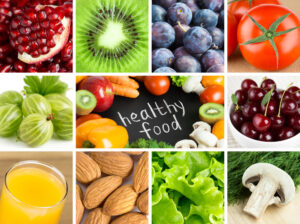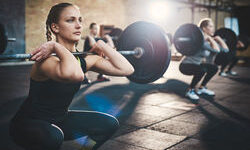Recovery food and drink
The importance of what you eat and drink post-exercise is as important as any stretching, icing or sauna-work to your post-exercise recovery.
A lot of people mistake recovery as something that is complicated, time-consuming and possibly expensive. They think it involves painful ice baths, massages and heaps of ibuprofen or other pain relievers.
Keep recovery simple
In fact, the simplest and most effective recovery aid is food and drink. For example, drinking coffee can accelerate recovery by reducing muscle soreness and restoring your central nervous system, meaning you recover quicker after exercise.
By not replenishing the body after a strenuous work-out, you increase recovery time and put your joints, muscles and even bone structure under pressure. The science is simple but scary – when you exercise your body uses extra minerals and vitamins. These would normally be  working to maintain your body’s everyday functions but when they are called upon, they go to the site of stress. This means that calcium and magnesium, for example, are ‘borrowed’ from the bones and sent to the muscles. That can lead to weaker or brittle bones if the minerals are depleted and not replaced regularly.
working to maintain your body’s everyday functions but when they are called upon, they go to the site of stress. This means that calcium and magnesium, for example, are ‘borrowed’ from the bones and sent to the muscles. That can lead to weaker or brittle bones if the minerals are depleted and not replaced regularly.
So, if you are exerting enormous amounts of energy regularly, then your diet should be packed with the minerals and vitamins that you get naturally from food and drink.
Here are some good examples of foods that can aid recovery.
Berry good for you:
Blueberries and cherries have been proven to reduce the delayed onset of muscle soreness (DOMS) that feeling of muscle soreness that occurs two days after exercise. These berries speed up the elimination of waste products produced during exercise.
Highly-glycemic:
High-glycemic foodstuffs replace glycogen fast, meaning your energy levels are restored quickly. Foods such as water melon, potatoes, squashes, pineapple and kiwi are all high-glycemic foods that have excellent repairing properties. Kiwi and pineapple also provide compounds that fight pain and inflammation.
Go nuts:
Eating a variety of fats from whole food sources has a protective effect on the body as it produces the correct ratios of different forms of fat. For example, bone repair is improved when Omega 3 and Omega 6 fats are balanced in the diet. Almonds have been found to be really beneficial when an athlete is in serious training – a study with trained cyclists showed that eating almonds daily over a month improved energy use and had antioxidant capacity.
Something fishy:
Salmon, cod and other fish is a rich source of Omega 3 fats. These fats improve cellular signalling and have anti-inflammatory qualities. Whether you take it as fish oil or as whole fish in the diet, this food stuff is thought to fight oxidative stress and reduce waste production during intense exercise.
Spice it up:
Turmeric and ginger are two wonder spices which have powerful anti-inflammatory properties that accelerate recovery and reduce DOMS. Tumeric, in particular, contains curcumin, which has been used for everything from wound repair to treatment against cancer. In a recent study a group of active subjects who took 200mg of turmeric daily showed lower levels of muscle injury when exercising.
And finally: Don’t forget your H2O. Water regulates your body temperature and is critical for muscle and heart function. It is also hugely important in the recovery process and you should make sure you are hydrated before, during and after exercise.







